in-store offers
the best of 2016
films
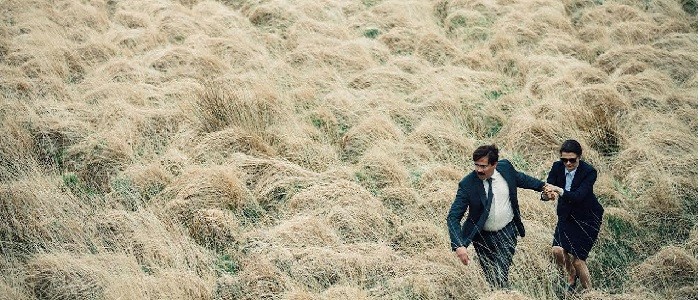
Here it is, our comprehensive list of the best films of 2016, the Top Of The Fopps, as voted for by staff in all of our nine stores, compiled here in all its glory.
You can read about our favourite films and albums in more depth in this month’s Best of 2016 special edition of The Fopp List – available for FREE in all of our stores, right up until the end of January.
1. The Lobster
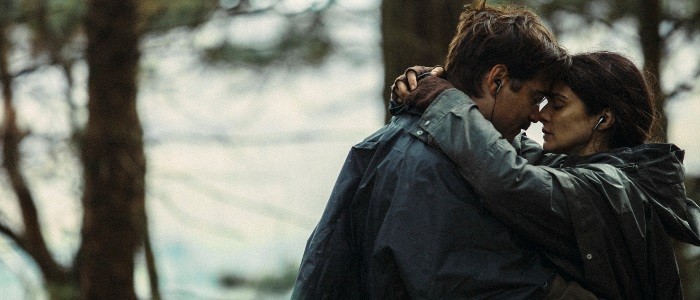
In The Lobster, Colin Farrell sports a small, sad-looking moustache; a symbol, perhaps, of his character’s dreary, beta male status in Yorgos Lanthimos’ eccentric comedy. In a dystopian future, single people like Farrell’s David are obliged to find a marriage partner before a specified deadline or they are turned surgically into animals of their choice and packed off into the wild. David, it transpires, rather fancies himself as a lobster.
David is taken for processing to a seaside hotel, whose manager is played by Olivia Coleman as somewhere between Basil Fawlty and Nurse Ratched. There, his fellow singletons include John C Reilly, Ben Whishaw and Ashley Jensen. Meanwhile, feral loners opposed to romantic conformity roam the woods outside; they, in turn, are hunted by the hotel’s occupants during daring nocturnal raids.
Such is the world depicted in Lanthimos’ extraordinary film that you could be forgiven for wondering whether you were watching a comedy or a faintly disturbing satire on the absurdity of conventional dating rituals. Fans of Bunuel, Lynch or Chris Morris will certainly recognize the dark surrealism at work here. But beneath the willfully incongruous nature of Lanthimos’ set-up, The Lobster has many serious points to make about loneliness, disconnection and the established orthodoxies of human relationships.
Farrell is always more watchable in smaller projects than he is in big budget affairs. As viewers of his recent role in True Detective will have noted. Here, he is required to dampen his usual manic energies for a more subdued performance, which acts as a satisfying counterpoint to the dazzling weirdness Lanthimos brings elsewhere to the proceedings. Where else, after all, might you encounter a dog who might well turn out to be someone’s brother?
2. Sicario
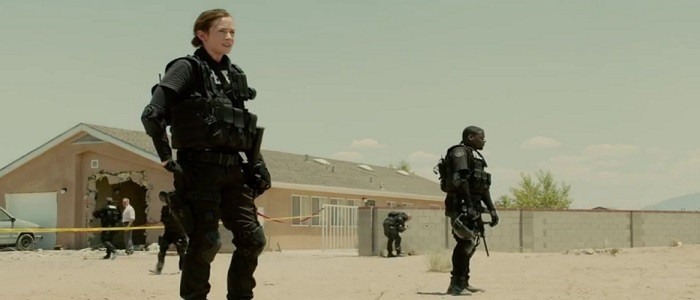
Sicario was among a number of similarly themed projects clustered together at cinemas in 2015, charting the gripping but ultimately toxic Mexican drug business. There was Matthew Heineman’s Cartel Land, a powerful study of civilian groups challenging the power of the gangs, Benicio Del Toro’s Escobar biopic and Netflix’s Narcos series. Denis Villeneuve’s Sicaro was a kind of fictional iteration of Heineman’s doc, in which the director had embedded himself with vigilante groups on both sides of the US-Mexico border. For Sicario, Canadian director Villeneuve brought charged drama to this story of a DEA agent – Emily Blunt – recruited into a DEA task force to tackle the Mexican drug trade.
Blunt experiences a world of machismo, danger and increasing uncertainty as to whose side anyone’s really on, including herself. Gruesome and explosive acts follow, but Villeneuve marshalled his narrative with the confidence of Michael Mann at peak power. Mann is an interesting comparison: an avowed stylist, he is interested, dramatically speaking, in the interplay of oppositional but similar characters – as per De Niro and Pacino in Heat. In this instance, it is Blunt’s Kate Macy versus the wildly different techniques and characteristics of her colleagues, the cynical, arrogant Matt (Josh Brolin) and the blank, taciturn Alejandro (Del Toro, again). There are wars within wars: Kate finds herself involved in a deniable dirty conflict operating outside US borders.
But Villeneuve is also channeling a little of late period Ridley Scott, who has also brought to bear his stylish big guns to American genre staples. Intriguingly, Villeneuve has been tasked with bringing to our screens the next Blade Runner film – overseen, of course, by Scott himself. While the original 1982 movie played on the sensibilities of classic film noir, we might hope that Villeneuve’s sequel – titled Blade Runner 2049 – similarly takes full control of another genre film.
3. Embrace Of The Serpent
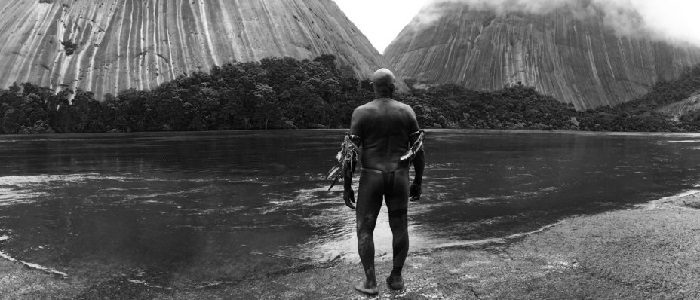
In 1909, a young shaman (Nilbio Torres) in the Colombian Amazon helps a sick German ethnographer (Jan Bijvoet) and his local guide (Miguel Dionisio Ramos) search for a rare healing plant, the Yakruna flower. Many years later, an American botanist (Brionne David), visits the elderly shaman (Antonio Bolívar) hoping to finish the work begun by her German predecessor. Ciro Guerra’s psychedelic historical odyssey charts these two parallel expeditions – companion pieces, of a sort, to Werner Herzog’s Fitzcarraldo or Roland Joffe’s The Mission, which have both explored notions of imperialism and the clashes between wildly different cultures.
Guerra’s shaman, Karamakate, believes himself to be the last of the Cohiuano, whose people were wiped out by colonial robber companies. He acts as a bridge between the film’s two storylines, and treats both of the westerners in his company with disdain. He refers to himself as a Chullachaqui – a spirit. “We all have one. It looks like you, but is empty, hollow, a ghost without time.”
The dialogue is sparse and sharp, mirroring Karamakate’s distant relationship with the western explorers. Meanwhile, David Gallego’s vibrant, monochrome cinematography accentuates both the lush beauty and harsh, oppressive qualities of the landscape. Guerra’s soundtrack is busy with the sound of insects and rushing water, while there are trancelike investigations into the folklore and belief systems of the Amazonian tribes. The film ends in an astonishing Technicolor dream – a critical moment in the life of Richard Evans Schultes – the character played by Brionne David – who later co-authored a book, The Plants of The Gods: Their Sacred, Healing and Hallucinogenic Powers.
4. Son Of Saul
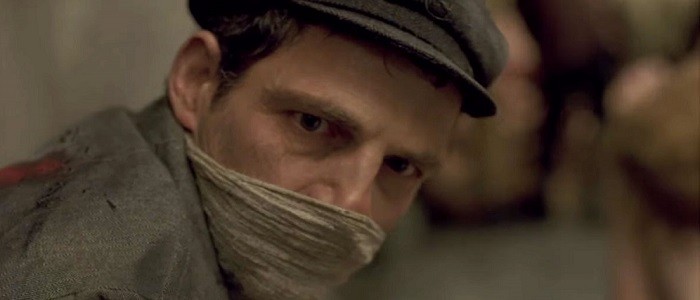
The lengths to which a person will go to survive – the attended moral consequences and their burden – are very much on the mind of filmmaker László Nemes. In Son Of Soul, he focuses on Saul Auslander (played by Hungarian actor Geza Röhrig), a Hungarian Jew incarcerated in the Auschwitz-Birkenau death camp in 1944. As a member of the Sonderkommando, Saul has been given a stay of execution in order to help manage the daily business of leading new inmates into the gas chambers and assist with the grisly clean-up operation afterwards.
It is here, inside the chambers, that Nemes’ story begins when Saul believes he has found his son. Subsequently, he goes to perilous efforts to bury the boy’s corpse, hunting through the madness of the camp for a rabbi to help and striking deals with fellow inmates using valuables removed from the dead as currency.
It goes without saying, Son Of Saul is a stark and uncompromising film – more so, perhaps, because Nemes deliberately never softens his gaze. Unlike, say, Schinder’s List or The Pianist – films that dealt with similar subject matter – there is no emotional catharsis here. It is relevant that Nemes worked as an assistant for Béla Tarr, the formidable Hungarian filmmaker whose own ascetic sensibilities are reflected in his protégé’s debut.
Ultimately, though, Son Of Saul is not a film that offers answers. We never know why Saul has chosen to work as a Sonderkommando – an unpleasant, nightmarish task – nor whether the boy really is his son. Making his debut, Röhrig is exceptional – Saul seems to sleepwalk through the horrors around him, as if all normal human emotion and behaviour has been burned away in this horrendous, hellish place. Both he and Nemes should be admired: they have created a forceful and unsettling investigation into the intimate mechanics of mass murder.
5. Victoria
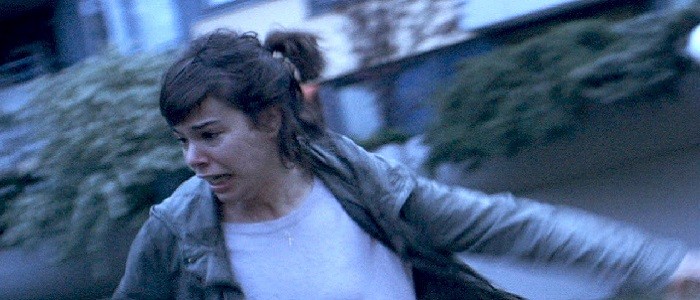
Shot over two hours in a single, continuous take, Sebastian Schipper’s immersive German crime drama presents a huge logistical and artistic challenge. Whereas previous single take films like Hitchcock’s Rope or Alexander Sokurov’s Russian Ark took place in one site, Schipper’s remarkable film relies on multiple settings and set-ups; nightclubs, rooftops, parking lots and 19 other locations spread across Berlin. Laia Costa plays the title character – a spirited waitress who is recruited to act as the getaway driver in a daring bank heist.
Along with the film’s other principals, Costa is a feisty and engaged performer; evidently able to sustain focus on the demanding requirements of Schipper’s film.
The film’s second half – which details the heist itself and its aftermath – is as charged as any multiplex action film, but evidently filmed on a fraction of a typical Hollywood budget. The conceit of Schipper’s film, meanwhile, is soon forgotten as the tension ratchets up, ever higher.
6. High-Rise
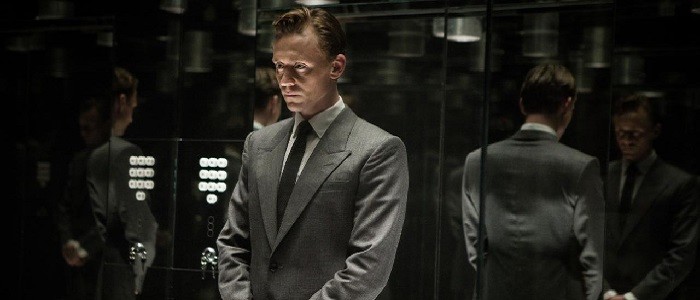
Ben Wheatley’s adaptation of JG Ballard’s celebrated sci-fi novel takes place in a newly-built tower block whose occupants succumb to a collective breakdown when the building’s systems begin to fail. At its centre is a dry, self-possessed performance from Tom Hiddleston as Robert Laing, the young surgeon who moves into a bachelor flat in the block and coolly observes the film’s events.
Around him orbit, Luke Evans’ documentary maker Richard Wilder who responds viscerally to the building-wide mayhem. As the building’s architect Anthony Royal, Jeremy Irons is at his most Jeremy Irons – inscrutable, implacable. Sienna Miller, as Laing’s free-spirited neighbour, is one of the few characters who seem able to navigate the twisting psychological landscape inside the tower.
Elsewhere, James Purefroy and Reece Shearsmith deliver grotesque comic performances. Portishead’s stately cover of ABBA’s “S.O.S” soundtracks a montage of freewheeling chaos. Wheatley may lack Ballard’s satirical edge – but his devilish glee is infectious.
7. Rams
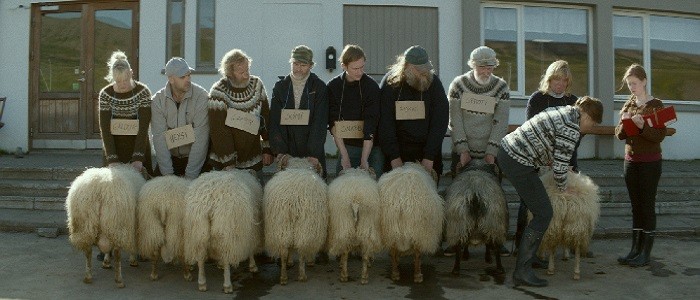
A deadpan yarn about feuding sheep farmers in the frozen north of Iceland, Grímur Hákonarson’s film is partly a darkly comedic meditation on human resilience and partly a study of the region’s harsh but majestic landscape. The two things, it transpires, are compatible.
Sigurður Sigurjónsson and Theodór Júlíusson play Gummi and Kiddi – estranged brothers who compete with each other for the ‘best ram’ contest, a highlight in the local community. Although their farms are adjacent, they don’t speak: instead Gummi passes notes to Kiddi’s resourceful sheepdog to deliver. Kiddi, meanwhile, takes a shotgun to Gummi’s bedroom window. When an outbreak of the fatal Scrapie disease threatens the livelihoods of both men, the brothers are forced to put aside their decades-old rivalries and work together.
The film moves from the relative lushness of summer to the deep freeze of winter; a bitter, inhospitable time and the perfect moment for tragedy to strike. “This is going to be a hell of a winter,” says Kiddi, when their silence is finally broken. “No sheep. Just the two of us!”
Winner of the Un Certain Regard award at last year’s Cannes festival, Rams pitches its pair of intransigent protagonists against bleak, Arctic landscapes of wide, wintry skies and treeless hills. Hákonarson’s measured pace, meticulous detail and documentary-style atmosphere work well here; the tone and sensibility reflects the chilly environment. Aki Kaurismaki is an obvious reference point, as well as the austere aesthetic of the Romanian new wave.
Hákonarson presents his two antiheroes as men out of time, the last vestiges of a near-obsolete way of life. Sigurjónsson and Júlíusson – both in their sixties – convincingly convey their characters’ hardscrabble lives, their deeply lined and wrinkled faces resembling nothing less than the intricate and impressive wood-carvings of ancient and formidable Norse deities.
8. The Nice Guys
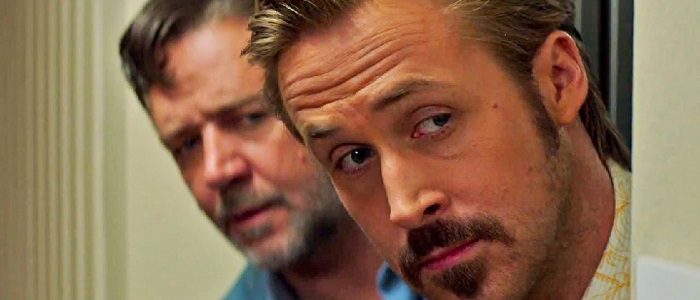
Shane Black made his reputation – and a small fortune – writing action movies for the likes of Willis (The Last Boy Scout), Gibson (Lethal Weapon) and Schwarzenegger (Last Action Hero). In 1996, he sold the script for The Long Kiss Goodnight for a record breaking $4 million. But after it flopped, Black found himself in the wilderness for a decade.
Now finding himself in the midst of a successful second act, Black has returned to his old ways. The Nice Guys is a buddy movie set in a kind of pop-culture noir universe familiar from Black’s earlier work.
There is a dead porn star, a conspiracy and two mismatched private detectives: Russell Crowe – flabby, thuggish – and Ryan Gosling – struggling, doleful. That it is set in Los Angeles in the 1970s throws back to another era of filmmaking – conspicuously, Chinatown and Altman’s The Long Goodbye. However, the mix of profane, hard-bitten dialogue and broad slapstick are very much Black’s own.
9. Love

Never one to shy away from controversy, the return of Gaspar Noé inevitably comes freighted with drama. Billed as “3D erotica”, Noé’s latest not only features full frontal nudity but oral sex, intercourse, ejaculation and a threesome scene with a transgender partner.
The narrative – if you’re interested – follows a young filmmaker, Murphy (Karl Glusman), who revisits in flashback his turbulent relationship with a French girl in Paris, Electra (Aomi Muyock). “I want to make movies out of blood, sperm and tears,” Murphy declares at one point; evidently, his wish comes true, but critically, this could just as well be the voice of Noé himself, laying down his filmmaking strategy.
Love is, essentially, 50 Shades Of Grey with the sex in all its sticky, mucky glory. Whether it is to everyone’s tastes is moot; yet one should perhaps admire Noé for his incorrigible transgressive vision.
10. Mustang

Effortlessly deserving of its Oscar nod for best foreign language film, director Deniz Gamze Ergüven’s debut is an accomplished study of what it means to be young and female in Turkey. In a village in rural Anatolia, five orphaned sisters (Günes Sensoy, Tugba Sunguroglu, Elit Iscan) live under strict rule while members of their family prepare their arranged marriages.
The youngest, Lale (Güneş Şensoy) – who narrates the film – dreams of taking charge of her own life and escaping to Istanbul. In some respects, Mustang recalls Speed Sisters – the 2014 doc about the world’s first all-female racing-car driving team from occupied Palestine, which similarly focussed on the pressures faced in a male-dominated, conservative society – or perhaps The Virgin Suicides, which found another group of young girls facing gossip and misunderstanding.
It is a strong debut from Ergüven: deft, tender and although bleak it has a warmth and tone that is finally redemptive.
11. 45 Years
12. Carol
13. Room
14. Anomalisa
15. A Bigger Splash
16. Dheepan
17. The Assassin
18. Youth
19. Disorder
20. Tale Of Tales
21. The Program
22. Sunset Song
23. Tangerine
24. Green Room
25. Everybody Wants Some!!!
26. Taxi Tehran
27. Brooklyn
28. The Witch
29. Miles Ahead
30. Hitchcock / Truffaut
31. A War
32. Suburra
33. Bridge Of Spies
34. Evolution
35. Macbeth
36. The Club
37. The Survivalist
38. The Brand New Testament
39. The Jungle Book
40. Hail, Caesar!
41. Deadpool
42. Legend
43. A Hologram For The King
44. The Hateful Eight
45. Sing Street
46. 10 Cloverfield Lane
47. Black Mass
48. Batman V Superman: Dawn Of Justice
49. Crimson Peak
50. IP Man 3
51. The Martian
52. Spotlight
53. The Revenant
54. The Big Short
55. Nina Forever
56. The Commune
57. Bone Tomahawk
58. 99 Homes
59. Departure
60. Midnight Special
61. The Lady In The Van
62. And Then There Were None
63. Jane Got A Gun
64. Summertime
65. Louder Than Bombs
66. Little Girl Blue
67. The Hunger Games: Mockingjay Part 2
68. Life
69. Peggy Guggenheim: Art Addict
70. A Girl At My Door
71. In the Heart Of the Sea
72. Kill Your Friends
73. Men & Chicken
74. Our Little Sister
75. Ingrid Bergman: In Her Own Words
76. The Danish Girl
77. The Black Panthers: Vanguard Of The Revolution
78. Everest
79. Love & Mercy
80. Steve Jobs
81. Suffragette
82. Trumbo
83. Boys On Film 15: Time & Tied
84. Eddie The Eagle
85. Trapped
86. Irrational Man
87. The Walk
88. The Intern
89. Chemsex
90. Creed
91. Knight Of Cups
92. Freeheld
93. Dressmaker
94. Zootropolis
95. Eye In The Sky
96. Mississippi Grind
97. Mapplethorpe: Look At The Pictures
98. Walk In The Woods
99. April & The Extraordinary World
100. Bang Gang

6 Comments
WONDER WOMAN!
Hunt for the Wilderpeople is a masterpiece, and what about NWR’s The Neon Demon!!!
Neon Demon was woefully underdeveloped.
So Batman vs Superman made the list, but no room for Captain America Civil War or Dr Strange? !
What about Jim Jarmurch’s Gimme Danger?
You missed off Hunt for the Wilderpeople! Fab film